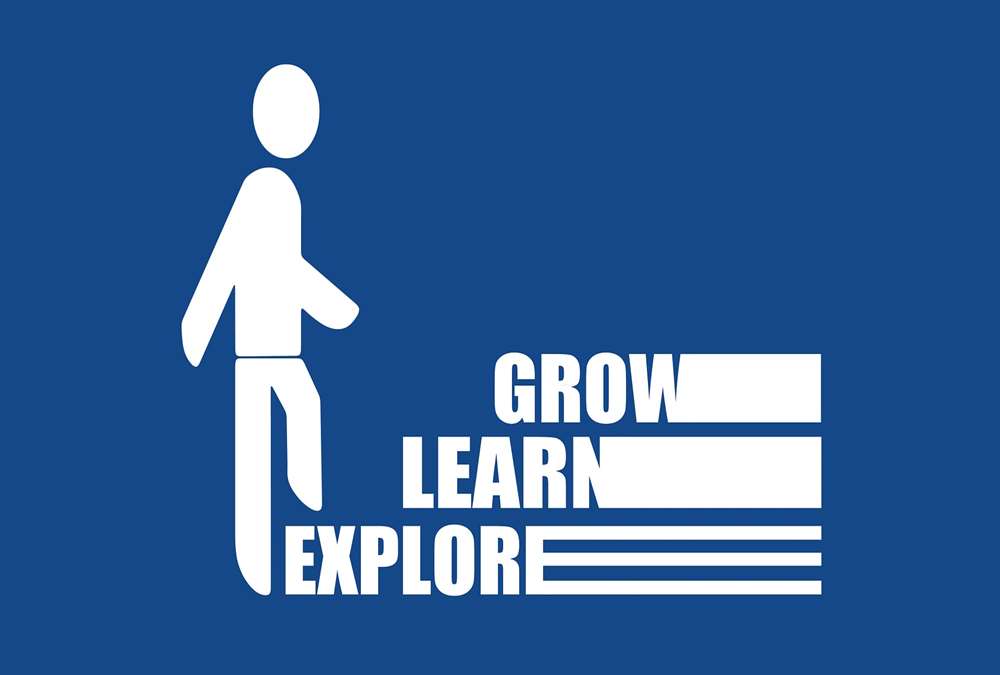- Home
- Business Processes
- Industry Knowledge
- Aerospace Industry
- Automotive Industry
- Banking Domain
- BFSI Industry
- Consumer/ FMCG Industry
- Chemicals Industry
- Engineering & Construction
- Energy Industry
- Education Domain
- Finance Domain
- Hospitality Domain
- Healthcare Industry
- Insurance Domain
- Retail Industry
- Travel and Tourism Domain
- Telecom Industry
- Leadership Skills
- eLearning
- Home
- Leadership
- Career Management
- Evaluating Your Career Interests
Evaluating Your Career Interests
Want to find out what you are best at when it comes to proactively building your career? What are your real interests? The first step in career planning is reflecting. Reflecting upon your own self, to be more self-aware, and then following your dreams with both your heart and mind. Here is an opportunity to begin exploring yourself. At the end of the process, you will have a far better understanding of your desires than you have currently.
The first step in career planning is reflecting. Reflecting upon your own self, to be more self-aware, and then following your dreams with both your heart and mind. Here is an opportunity to begin exploring that age-old question, ‘what do I want to do in my life?’ Try answering these questions and at the end of the process, you will have a far better understanding of your desires than you have currently. Try to introspect, as the answers to these questions are buried deep within you. Some questions might lead to the same answer, but we encourage you to try answering all of the following questions honestly, even if the answer seems to be the same!
Q1. What are my talents and strengths?
What are your top talents and strengths? What is it that you are good at? What is it that you enjoy doing and are passionate about? The talents you achieve most with? The activities you get the most satisfaction from?
Q2. How do other people think of me?
What is my perception of other people? What am I known for? What is it for which they generally come to me, seek my help or advice?
Q3. If money were no concern, what I would be doing?
While answering this question, think of no boundaries. Imagine you have the power to accomplish anything and you don’t have to worry about earning money to lead your life. In such a situation what you would do?
Q4. When have I been most committed, passionate, and enthusiastic?
Reflect on your life to date. When you have been most committed? When did you love working on something so much that you lost track of time? When you got satisfaction from some activity? When was the time you felt very committed and passionate about some task?
Q5. When have I been most creative?
Reflect again to remember when your creativity has been on its peak. When you created something that you enjoyed most? When have you enjoyed your work most?
Q6. What do I consider to be my greatest accomplishment?
What accomplishment you value most. Is there anyone moment in your life that you felt was your greatest achievement? Your answer can be related to any phase of your life, schooling, work, or personal life, as long as you view it as a personal achievement.
Q7. When do other people consider being my greatest accomplishment?
When other people think you have been the most successful. When you got a lot of recognition from others for doing something? What is it that you think your family, friends are proud of you?
Q8. When I have been most sure of myself and my decisions?
What were the circumstances when you were most sure of your decisions and were willing to make those decisions? Is there a situation where you have taken a very strong stand? If yes, what were you trying to achieve?
Q9. What talents was I relying on, and using, in these situations?
What were the talents that you were using were confident of in situations from Q2 to Q8. Were there some interests or values that you were following? Also, add any talents that you might have discovered using any psychometrics tests.
Q10. What are my top 5 interests or talents?
Based on your reflection on questions from 1 to 9 identify your top 5 key talents or interests that matter most to you and you consider yourself to be good at.
Download the template provided here free of cost and use that to explore these questions. The five top talents will be used in a later exercise to understand your career options and developmental plan.
Explore Technofunc Toolkit
Technofunc resources aim at equipping you to leverage technology as well as learn critical business application processes along-with system integrity and security, systems audit, project management, and other key methods widely used today that helps in the integration of business processes and practices in tune with the requirements that are driven both by business, globalization, and legislature. We help you gain expertise in both technical and functional skills, which when applied collectively comprise of professional competence and excellence.
Given below are the different technofunc resources to start building your technical leadership skills:
Build Domain Skills
- Aerospace Domain
- Automotive Domain
- Banking Domain
- BFSI Domain
- Consumer / FMCG Domain
- Chemicals Domain
- Engineering and Construction Domain
- Energy Domain
- Education Domain
- Financial Management & Business Dynamics
- Global Markets Domain
- Hospitality and Leisure Domain
- Healthcare Domain
- Insurance Domain
- Technology Domain
- Retail Domain
- Travel Domain
- Telecom Domain
Related Links
You May Also Like
-
Tips for Effective Time Management
After studying and analyzing how time is spent, why time is wasted, and where time is wasted you need to decide about the changes required for effective utilization of time. For this purpose, a large number of remedial measures can be taken by you. The first and foremost determinant of a planned and purposeful utilization of time is to develop consciousness of the value of time at all levels of the organization. Planning, goal setting, and defining priorities are concerns to addressed immediately.
-
Evaluating Your Career Interests
Want to find out what you are best at when it comes to proactively building your career? What are your real interests? The first step in career planning is reflecting. Reflecting upon your own self, to be more self-aware, and then following your dreams with both your heart and mind. Here is an opportunity to begin exploring yourself. At the end of the process, you will have a far better understanding of your desires than you have currently.
-
Tools for Developing Your Team
If a manager has too many weak spots in the talent of the team, the ability to empower the team members to independently execute the project is impaired. Assignments fall behind schedule or stretch out because the needed skills or knowledge are not in place when needed. To successfully execute important projects, hiring talented people, and increasing the talents of existing staff are most important.
-
Recognizing Stress & its Sources
As an individual, you almost certainly know what stress feels like. Stressors are events or situations to which people must adjust. Stressors may be physical or psychological in nature. The level of severity of stress is determined not merely by exposure but the intensity, duration, and frequency of stressors. The sources of stress are many. They arise from multiple areas both with the individual and from the environment.
-
Develop your Leadership Skills
There are a number of broad skill areas that are particularly important for leaders. Today's demanding global business landscape is defined by relentless change and rising business complexity, bringing new challenges. Leadership skills provide career-enhancing resources and support you to be exceptionally successful in your career. Leaders need to provide direction to their teams and need to be able to make good and timely decisions to define and support strategic direction for the enterprise.
-
Team Development by Building Trust
As your team begins to work together, you need to establish a way each team member can exchange ideas and build mutual trust. Successful groups are built on trust and collaboration. A free exchange of ideas, in an open environment, will allow your team to get to know each other and enable you to check on how they work together. Learn some tips to help build team trust and establish personal bonds.
-
Guide to Technical Leadership Skills
Technical leaders care about building amazing products and the best technical capabilities in their teams. Everything they do is focused on improving the user experience and bringing competitive advantage for their organization. Learn the skills and competencies you need to build a technical career path for yourself that starts with building technical expertise and grows into developing technical leadership.
-
Concept & Definition of Stress
Stress is a popular expression used by people in day to day life. Pressures of day to day living sometimes necessitate coping or dealing with them and stretch the body beyond its natural capacity. They are called stressors. Stress is a natural, ongoing dynamic, and interactive process that takes place as people adjust to their environment.
-
Stress is a product of the busyness of modern life. It has assumed grave dimensions ever since the emergence of industrialism. In fact, stress is a natural, ongoing, dynamic, and interactive process that takes place as people adjust to their environment. Stress can be brought about by positive or negative life events. Distress can cause disease and eustress or positive stress can promote wellbeing and increased productivity. Learn to recognize and be responsible for your stress, and learn the ways to manage stress.
-
Time management is the process of planning and exercising conscious control of time spent on specific activities, especially to increase effectiveness, efficiency, and productivity. The best time management techniques improve the ways you work. Time management refers to managing time effectively so that the right time is allocated to the right activity. Learn more about the five steps for effective time management viz. study, identify, analyze, decide, and implement.
Explore Our Free Training Articles or
Sign Up to Start With Our eLearning Courses

About Us
Learning
© 2023 TechnoFunc, All Rights Reserved










